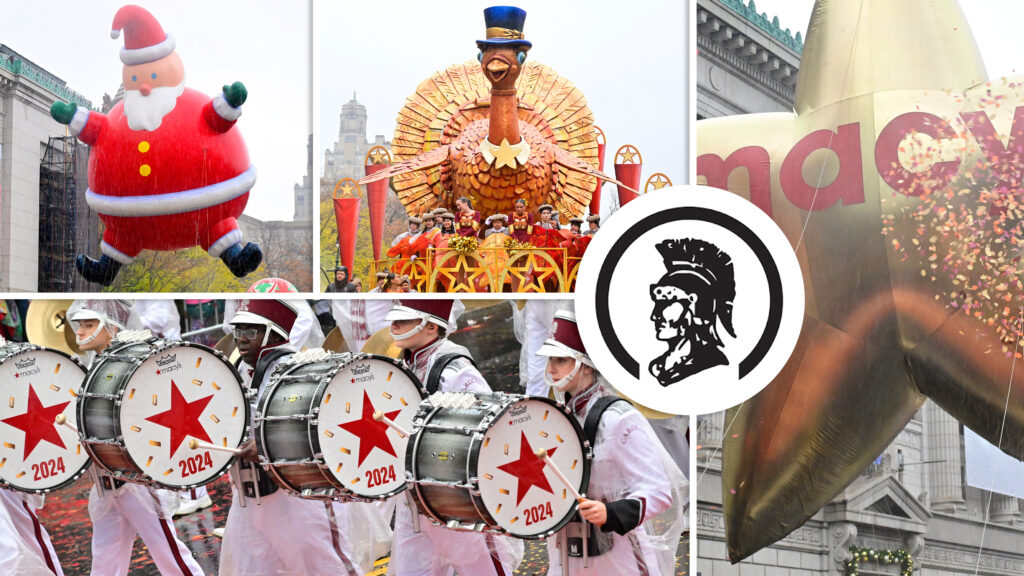Concluding the 1986 Drum Corps International Tour, the DCI World Championships returned for the second of three years in a row to the University of Wisconsin’s Camp Randall Stadium.
The Blue Devils became the first corps to win all captions in the Finals competition since the California corps pulled off the same accomplishment in 1976. Were it not for a loss to Santa Clara Vanguard during the first show of the season, the Devils would have also had an undefeated season.
Vanguard finished in second place for the second of four consecutive years, while the Cavaliers placed in the top-three for the first time in DCI history, nudging Garfield Cadets by just a tenth of a point.
The Madison Scouts finished the season in seventh place, opening their show with “Alex’s Rag,” loosely based on the popular drum corps classic, “Alexander’s Ragtime Band” by Irving Berlin. Corps brass arranger John Georgeson discovered the setting while he was a grad student in the jazz band at the University of North Carolina and based his arrangement and harmonies on his memory of the piece.
The brass players started in a tight circle of 20 yards in diameter, with the color guard performers in a tighter circle. Both circles unwound in a move that accelerated into a new form, with the color guard members jazz running into the new position.
The piece took Berlin’s ragtime and converted it into a jazzy swing, emphasized visually with the color guard utilizing rifles and swing flags. Those guard members wore sparkling red vests with narrow red neckties, which later in the show they’d remove, turn inside out, and put back on as gold and black vests.
Toward the end of the piece, during a block diamond form that moved sideways, Berlin’s original treatment was much more in evidence.

The next selection, “Harlem Suite,” was based on Duke Ellington’s “Harlem,” a symphonic jazz suite commissioned in 1950 by famed orchestral conductor Arturo Toscanini to be part of a larger work celebrating New York City. Ellington later recorded the piece as “A Tone Parallel to Harlem” for his 1951 “Ellington Uptown” album.
In describing the piece in his personal memoirs, Ellington wrote, “We would now like to take you on a tour of this place called Harlem … You may hear a parade go by, or a funeral, or you may recognize the passage of those who are making Civil Rights demands.”
The Scouts opened the work with a soprano bugle playing the same “wah-wah” trumpet solo Ellington wrote to open his suite, which the composer said was an intoning of the word, “Harlem.” Soon after, the entire horn and drum lines rotated a stylized treble clef sign.

Much of the piece was in a rollicking swing style. A highlight was when members of the color guard were featured interacting with bar stools as dance partners, twisting, spinning, and performing dance steps with the inanimate objects.
The show ended with Andrew Lloyd Webber’s “Starlight Express,” a 1984 musical about a child’s train set coming to life. According to Georgeson, the opening of this section was a mash-up of a countermelody from Webber’s “Cats” and the “Starlight Express Overture.”
The guard members interpreted the music with large short-handled swing flags which they eventually extended into full-length flag poles for the climax. The show ended with a closing tag created by Georgeson that was based on various “Starlight” themes.
1986 Overview

Michael Boo was a member of the Cavaliers from 1975-1977. He wrote about the drum corps activity for more than 35 years while serving as a staff writer for various Drum Corps International projects. During his lifetime Boo wrote for numerous other publications including an honors-winning book on the history of figure skating. He also was an accomplished composer. Boo passed away in 2020 and was inducted into the DCI Hall of Fame posthumously in 2021.





